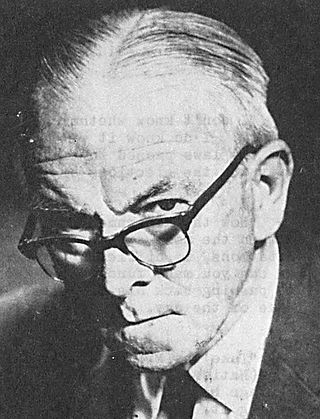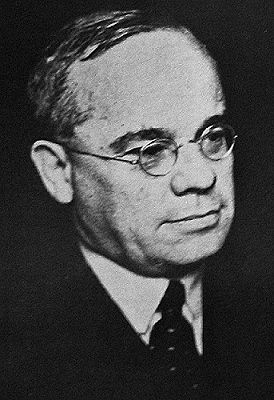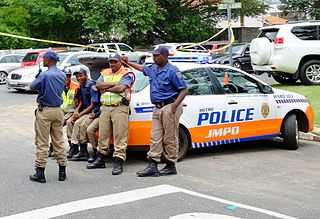The Republic of South Africa is a unitary parliamentary democratic republic. The President of South Africa serves both as head of state and as head of government. The President is elected by the National Assembly and must retain the confidence of the Assembly in order to remain in office. South Africans also elect provincial legislatures which govern each of the country's nine provinces.

Alan Stewart Paton was a South African writer and anti-apartheid activist. His works include the novels Cry, the Beloved Country (1948), Too Late the Phalarope (1953), and the short story The Waste Land.
Immorality Act was the title of two acts of the Parliament of South Africa which prohibited, amongst other things, sexual relations between white people and people of other races. The first Immorality Act, of 1927, prohibited sex between whites and blacks, until amended in 1950 to prohibit sex between whites and all non-whites. The second Immorality Act, of 1957, continued this prohibition and also dealt with many other sex offences. The ban on interracial sex was lifted in 1985, but certain sections of the 1957 act dealing with prostitution remain in force as the "Sexual Offences Act, 1957".

The National Party, also known as the Nationalist Party, was a political party in South Africa from 1914 to 1997, which was responsible for the implementation of apartheid rule. The party was an Afrikaner ethnic nationalist party, which initially promoted the interests of Afrikaners but later became a stalwart promoter and enactor of white supremacy, for which it is best known. It first became the governing party of the country in 1924. It merged with its rival, the SAP, during the Great Depression, and a splinter faction became the official opposition during World War II and returned to power. With the National Party governing South Africa from 4 June 1948 until 9 May 1994, the country for the bulk of this time was only a de jure or partial democracy, as from 1958 onwards non-white people were barred from voting. In 1990, it began to style itself as simply a South African civic nationalist party, and after the fall of apartheid in 1994, attempted to become a moderate conservative one. The party's reputation was damaged irreparably by perpetrating apartheid, and it rebranded itself as the New National Party in 1997 before eventually dissolving in 2005.

The Liberal Party of South Africa was a South African political party from 1953 to 1968.

The Prohibition of Mixed Marriages Act, Act No. 55 of 1949, was an apartheid-era law in South Africa that prohibited marriages between "whites" and "non-whites". It was among the first pieces of apartheid legislation to be passed following the National Party's rise to power in 1948. Subsequent legislation, especially the Population Registration and Immorality Acts of 1950, facilitated its implementation by requiring all individuals living in South Africa to register as a member of one of four officially defined racial groups and prohibiting extramarital sexual relationships between those classified as "white" on the one hand and those classified as "non-White" on the other. It did not criminalise sexual relationships between those classified as "non-Europeans".

A ban is a formal or informal prohibition of something. Bans are formed for the prohibition of activities within a certain political territory. Some bans in commerce are referred to as embargoes. Ban is also used as a verb similar in meaning to "to prohibit".
Liberalism in South Africa has encompassed various traditions and parties.

Jan Hendrik Hofmeyr was a South African politician and intellectual in the years preceding apartheid. In his lifetime he was regarded as one of the cleverest men in the country, and it was widely expected that he would eventually become Prime Minister of South Africa. He came from a well-known Afrikaner family; his uncle, also Jan Hendrik Hofmeyr but known affectionately as "Onze Jan" among fellow Afrikaners, was a famous figure in the Afrikaans language movement.

Apartheid was a system of institutionalised racial segregation that existed in South Africa and South West Africa from 1948 to the early 1990s. Apartheid was characterised by an authoritarian political culture based on baasskap, which ensured that South Africa was dominated politically, socially, and economically by the nation's minority white population. In this minoritarian system, there was social stratification and campaigns of marginalization such that white citizens had the highest status, with them being followed by Indians as well as Coloureds and then Black Africans. The economic legacy and social effects of apartheid continue to the present day, particularly inequality.

Group Areas Act was the title of three acts of the Parliament of South Africa enacted under the apartheid government of South Africa. The acts assigned racial groups to different residential and business sections in urban areas in a system of urban apartheid. An effect of the law was to exclude people of colour from living in the most developed areas, which were restricted to Whites. It required many people of colour to commute large distances from their homes to be able to work. The law led to people of colour being forcibly removed for living in the "wrong" areas. People of colour, who were the majority at the time, were given much smaller areas to live in than the white minority. Pass Laws required people of colour to carry pass books and later "reference books", similar to passports, to enter the "white" parts of the country.
Peter McKenzie Brown was a founding member of the Liberal Party of South Africa and succeeded Alan Paton as its national chairman in 1958.

The Comprehensive Anti-Apartheid Act of 1986 was a law enacted by the United States Congress. The law imposed sanctions against South Africa and stated five preconditions for lifting the sanctions that would essentially end the system of apartheid, which the latter was under at the time. Most of the sanctions were repealed in July 1991, after South Africa took steps towards meeting the preconditions of the act, with the final vestiges of the act being repealed in November 1993.

The Natives Land Act, 1913 was an Act of the Parliament of South Africa that was aimed at regulating the acquisition of land. It largely prohibited the sale of land from whites to blacks and vice-versa.

The system of racial segregation and oppression in South Africa known as apartheid was implemented and enforced by many acts and other laws. This legislation served to institutionalize racial discrimination and the dominance by white people over people of other races. While the bulk of this legislation was enacted after the election of the National Party government in 1948, it was preceded by discriminatory legislation enacted under earlier British and Afrikaner governments. Apartheid is distinguished from segregation in other countries by the systematic way in which it was formalized in law.

Law enforcement in South Africa is primarily the responsibility of the South African Police Service (SAPS), South Africa's national police force. SAPS is responsible for investigating crime and security throughout the country. The "national police force is crucial for the safety of South Africa's citizens" and was established in accordance with the provisions of Section 205 of the Constitution of South Africa.
The South African Liberal Students' Association (SALSA) exists to unify liberal student organisations across South African campuses. SALSA is the ideological descendant of the South African Liberal Association (SALA) (1936–1968), the first non-racial political organisation in South Africa, gathering many of its liberal principles and goals in its founding constitution. SALSA is a student organisation which is not aligned with any political party; and which believes in, practices and promotes the principles of liberal democracy on campuses.

The Industrial Conciliation Act, 1956, formed part of the apartheid system of racial segregation in South Africa. It prohibited the registration of any new 'mixed' unions and imposed racially separate branches and all-white executive committees on existing 'mixed' unions. It prohibited strikes in 'essential industries' for both black and white workers and banned political affiliations for unions. Clause 77 legalized the reservation of skilled jobs to white workers, as the Bantu Building Workers Act of 1951 had done in the construction trade, 'to ensure that they will not be exploited by the lower standard of living of any other race'.

The Population Registration Act Repeal Act, 1991 is an act of the Parliament of South Africa which repealed the Population Registration Act, 1950, ending the legal racial classification of South Africans which formed the basis of apartheid.
South Africa did not compete at Olympic Games from 1964 to 1988, as a part of the sporting boycott of South Africa during the apartheid era. The South African National Olympic Committee (NOC) was expelled from the International Olympic Committee (IOC) in 1970. In 1991, as part of the transition to multiracial equality, a new NOC was formed and admitted to the IOC, and the country competed at the 1992 Summer Olympics held in Barcelona.











